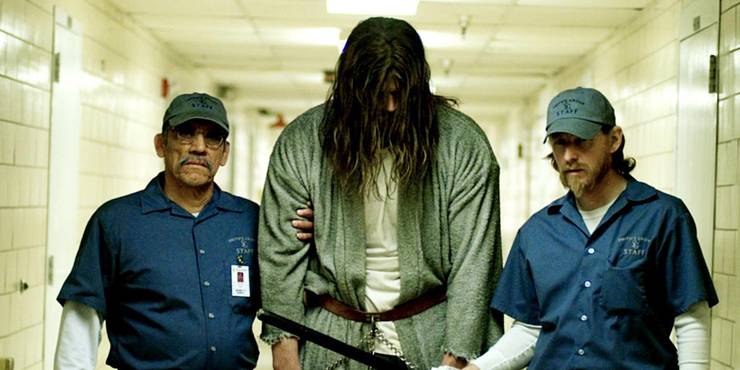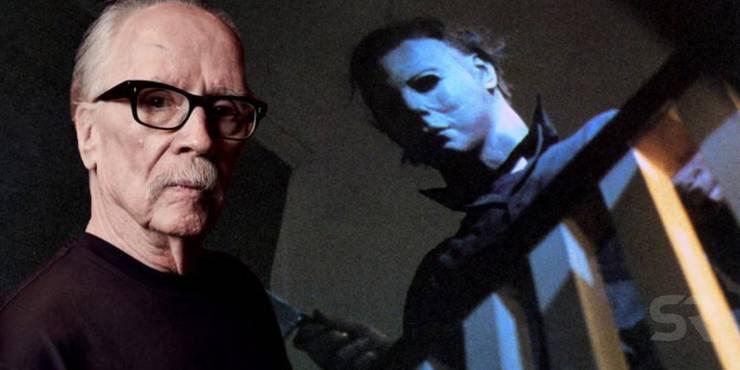Rob Zombie’s 2007 reimagining of John Carpenter’s Halloween caused a split in the fandom after Carpenter vocally expressed his distaste for the film.
Carpenter’s 1978 film, stylistically, was fairly demure for a horror film by modern standards, a product of the times. The original Halloween incited fear in its audience by preying on the concept of true evil born into an average man who lurks in the shadows in wait, ready to claim his next victim at any moment. Michael Myers is calculating, cunning, relentless in his pursuit, and has a terrifying presence that didn’t need much bravado or excess to be effective.
Rob Zombie’s films are packed with excess. His cinematic vision explores grit and gore and profanity as a cornerstone of his artistic style. Since Zombie has a massive fanbase from his musical career and his directorial success with House of 1000 Corpses and The Devil’s Rejects, it was easy to bring fans over when he announced that he would be remaking Halloween. It had been five years since audiences had been treated to a film in the franchise, so the notion of having a refreshed take was enticing.
Zombie’s Halloween Showed A Different Michael Myers

Though there are many commonly cited reasons why fans of the Halloween franchise consider Zombie’s take to be less than desirable, one of the most popular reasons is his take on Michael Myers. In Carpenter’s original vision, The Shape was precisely that: he was the Bogeyman, or, to quote the iconic line from Dr. Sam Loomis, “Death has come to your little town.” In Rob Zombie’s remake, Michael Myers got a backstory, which was previously vague.
Zombie explored the Myers family, pitting young Michael (Daeg Faerch) against an alcoholic step-father, a bratty teen sister, and a mother who is loving, but her career as a stripper gets him bullied at school. Michael is also older when he commits his first murder, ten instead of six, though the film explores that he’s been practicing with animals for some time. Though he violently dispatches his stepfather, his sister Judith, her boyfriend, and murdered a playground bully prior, he shows tenderness toward his baby sister and mother.
To many, this take might have been acceptable, if not for Michael’s transition into adulthood. Here, he has become a behemoth during his time at Smith’s Grove Sanitarium, crafting a variety of eerie papier-mâché masks and posting them all around his room. Michael (Tyler Mane) wears a mask at all times, and doesn’t speak to anyone. Dr. Loomis, who has become a successfully published author based on his work with Michael, comes to the conclusions that he has completely disassociated following his mother’s suicide. Eventually, Michael escapes and the story continues very much in the same vein as the original movie, but with excessive violence that feels more like Jason Voorhees than Myers.
John Carpenter Was Vocal About The Movie (And Zombie)

Critical reviews were low for Zombie’s remake, earning a 26% on Rotten Tomatoes and, despite being rather successful during its opening week at the box office, saw a sharp decline. Audiences, for the most part, didn’t like the “torture porn”, ’70s exploitative take. Many said that it seemed to err on the side of shock value rather than storytelling, despite the lengthy backstory. Some thought the film was trying to humanize Myers. Though Laurie Strode was featured in the remake, it didn’t achieve the same payoff due to the familial bond between them and the notion she could empathize with and provide a weakness for Michael. The sibling dynamic was an aspect Carpenter hated in the general franchise.
It took almost ten years for Carpenter to finally comment and, once he did, it solidified this film as being, essentially, dead in the water with many of his devotees, who had predominantly felt Zombie’s film bastardized Carpenter’s vision. Per Carpenter, Zombie had lied about how Carpenter had treated him in regards to him making the film. iHorror reported that, when talking to students at the New York Film Academy, he had some very strong opinions on Zombie and his treatment of Myers. Some of Carpenter’s non-personal reasons involved him not enjoying Myers’ backstory. Likewise, he didn’t like the physical presence of him or the fact that he seemed supernatural somehow. Carpenter worked with director David Gordon Green on the 2018 sequel, which many considered to be his way to set the record straight regarding his general feelings about Halloween.
About The Author




